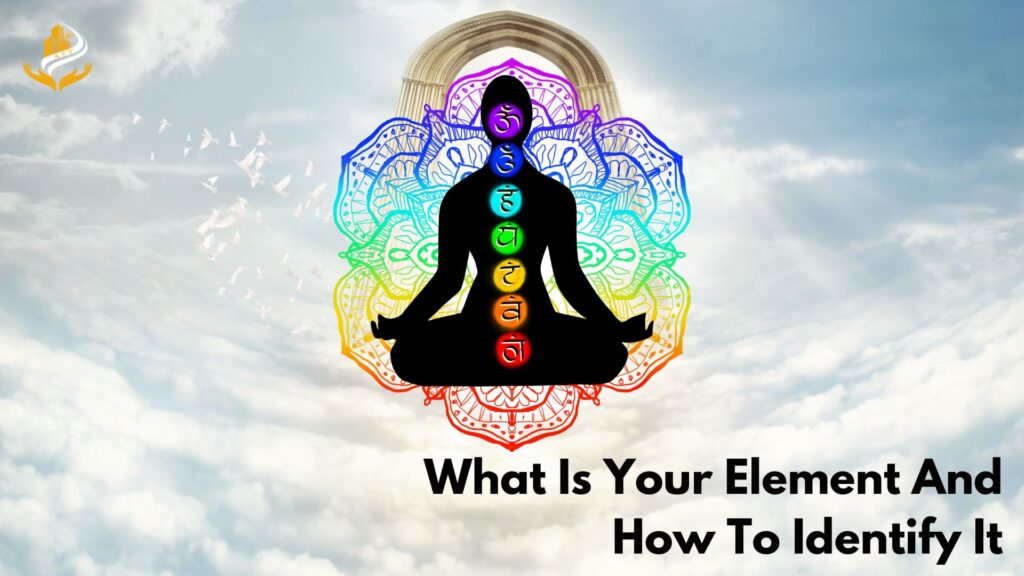Understanding your element can be an enlightening experience that connects you more deeply with yourself and the world around you. In many traditions, elements are thought to embody different aspects of nature, personality, and even destiny. By identifying your element, you can gain insights into your strengths, weaknesses, and the energies that influence your life.
What Are the Elements?
In various philosophies and spiritual practices, the world is often broken down into fundamental components, known as elements. The most common framework includes four or five primary elements:
- Earth: Stability, grounding, and physicality.
- Water: Emotions, intuition, and fluidity.
- Fire: Passion, transformation, and energy.
- Air: Intellect, communication, and freedom.
- Aether (sometimes included): Spirit, connection, and the ethereal.
Each element represents different qualities and energies. People often resonate more strongly with one element, which can reveal a lot about their personality and life path.
How to Determine Your Element
Determining your element is a personal journey that involves self-reflection and understanding your natural tendencies. Here’s how you can find out which element you align with the most.
1. Examine Your Personality Traits
The first step in discovering your element is to take a close look at your personality traits. Which qualities best describe you? Here’s a quick overview of the characteristics associated with each element:
- Earth: You are practical, responsible, and grounded. You prefer stability and security and are often seen as reliable and strong. People who align with Earth are usually very connected to nature and the physical world.
- Water: You are empathetic, nurturing, and deeply connected to your emotions. You may find yourself sensitive to the feelings of others and have a strong intuition. Water personalities often go with the flow and adapt easily to change.
- Fire: You are passionate, energetic, and sometimes intense. You may have a strong drive and ambition, with a desire to transform your surroundings. Fire personalities can be inspiring leaders but might also have a tendency towards impulsiveness.
- Air: You are intellectual, communicative, and curious. You enjoy exploring new ideas and concepts, and you value freedom and independence. Air personalities often excel in social situations and have a natural gift for communication.
As you reflect on your personality, consider which traits resonate most with you. This can give you an initial sense of your elemental alignment.
2. Reflect on Your Physical Environment
Your preferences for certain physical environments can also offer clues about your element. Where do you feel most at home? Where do you thrive?
- Earth: Do you feel drawn to the mountains, forests, or gardens? Earth-aligned people often find comfort in solid, natural environments.
- Water: Are you most at peace near oceans, lakes, or rivers? If you’re water-aligned, you might feel rejuvenated by being close to water.
- Fire: Do you feel invigorated in warm climates or by the crackle of a fire? Fire-aligned individuals might enjoy deserts or places where they can feel the warmth of the sun.
- Air: Do you love wide-open spaces, windy places, or heights? Air-aligned people often feel at ease in areas with lots of movement and space.
Think about where you feel most alive and connected. This connection can be a strong indicator of your element.
3. Consider Your Emotional Responses
How you handle emotions can also be a clue to your elemental nature. Each element has a distinct way of dealing with feelings and stress:
- Earth: You tend to stay calm and composed, often taking a pragmatic approach to emotions. You might prefer to focus on solutions rather than dwelling on feelings.
- Water: You experience emotions deeply and may be very empathetic. You’re likely to express your feelings openly and may feel others’ emotions as if they were your own.
- Fire: You react with passion and intensity. Your emotions may be strong and quick to surface, and you might express them boldly.
- Air: You approach emotions with logic and reason. You might analyze your feelings or try to understand them from an intellectual perspective rather than just feeling them.
Understanding how you process emotions can provide more insight into your elemental alignment.
4. Explore Your Dreams and Imagination
The imagery in your dreams and daydreams can be telling. What elements appear most frequently in your imaginative life?
- Earth: You might dream of landscapes, mountains, or buildings. Your imagination may focus on structure and stability.
- Water: You may have dreams involving oceans, rivers, or rain. Your imagination could be fluid and often connected to emotions.
- Fire: You might dream of fire, sunlight, or volcanic eruptions. Your imagination could be filled with energy and transformation.
- Air: You could dream of flying, wind, or open skies. Your imagination might soar with ideas and freedom.
The recurring themes in your dreams and imagination can be a strong indicator of your element.
5. Assess Your Reactions to Change
How do you handle change and new experiences? Each element has a unique response to the unknown:
- Earth: You may prefer routine and stability, often resisting change unless necessary. You like to feel secure and grounded.
- Water: You might go with the flow, adapting easily to new situations. Change can be seen as an opportunity for growth and transformation.
- Fire: You could embrace change with enthusiasm and energy, often initiating transformation yourself. You might see change as a way to challenge yourself.
- Air: You may welcome change as a chance to explore new ideas and possibilities. You could be flexible and open to new experiences.
Your comfort level with change and how you react to it can provide further clues about your elemental nature.
How Your Element Affects Your Life
Once you’ve identified your element, you can begin to understand how it influences various aspects of your life.
1. Relationships
Your element can play a significant role in your relationships. For example:
- Earth: You might value loyalty and stability in relationships. You’re likely to be dependable but may struggle with spontaneity.
- Water: You may seek deep emotional connections and might be very nurturing. However, you could be prone to taking on others’ emotions.
- Fire: You might bring passion and excitement to relationships but could also be intense or quick to anger.
- Air: You might value intellectual connections and freedom in relationships, but you could struggle with being overly detached.
Understanding your element can help you navigate your relationships more effectively, allowing you to communicate better and fulfill your needs.
2. Career and Ambitions
Your element can also influence your career choices and ambitions:
- Earth: You might excel in careers that require stability, organization, and practicality. You’re likely to be a steady worker who values security.
- Water: You might thrive in careers that involve empathy, creativity, and intuition. You could be drawn to roles where you can help others or express yourself artistically.
- Fire: You might be driven to pursue leadership roles, entrepreneurship, or careers that require passion and energy. You’re likely to be ambitious and motivated by challenges.
- Air: You might excel in careers that involve communication, ideas, and innovation. You’re likely to enjoy work that allows for flexibility and intellectual stimulation.
By understanding your element, you can choose a career path that aligns with your natural strengths and inclinations.
3. Health and Well-being
Your element can also affect your approach to health and well-being:
- Earth: You might benefit from routines and activities that keep you grounded, such as gardening, walking, or yoga. Maintaining a balanced diet and regular exercise could be essential for you.
- Water: You might find that activities like swimming, meditation, or journaling help you maintain emotional balance. Staying hydrated and managing stress is crucial.
- Fire: You might need regular physical activity to channel your energy, such as running, dancing, or martial arts. It’s important for you to find healthy outlets for your passion and intensity.
- Air: You might benefit from activities that stimulate your mind, such as reading, writing, or brainstorming. Practicing deep breathing exercises or spending time in nature could help you stay balanced.
Aligning your health practices with your element can lead to a more harmonious and balanced life.
How to Balance Your Element
While it’s important to understand your dominant element, it’s equally vital to balance all the elements within you. Here’s how you can achieve balance:
1. Incorporate All Elements into Your Life
- Earth: Spend time in nature, eat nourishing foods, and create routines that ground you.
- Water: Engage in creative activities, connect with your emotions, and stay hydrated.
- Fire: Exercise regularly, pursue your passions, and embrace transformation.
- Air: Stimulate your mind, communicate openly, and spend time in wide-open spaces.
By incorporating activities and practices from all elements, you can achieve greater balance and harmony in your life.
2. Recognize When You’re Out of Balance
Sometimes, one element can become too dominant, leading to imbalance. Here’s how to recognize and correct it:
- Too Much Earth: You may feel stuck or resistant to change. Try to embrace flexibility and spontaneity.
- Too Much Water: You might feel overwhelmed by emotions. Focus on grounding practices like meditation or spending time in nature.
- Too Much Fire: You could be feeling burnt out or overly aggressive. Try to cool down with calming activities like swimming or deep breathing.
- Too Much Air: You might feel scattered or detached. Ground yourself with physical activities or by spending time in nature.
Recognizing when you’re out of balance allows you to take steps to realign your energies.
Finding your element is a journey of self-discovery that can bring you closer to understanding who you are and how you interact with the world. By examining your personality, environment, emotions, and dreams, you can identify the element that resonates most with you. Once you know your element, you can use this knowledge to enhance your relationships, career, health, and overall well-being.
Renowned astrologers often emphasize the importance of this self-awareness, as it provides a deeper connection to the energies that shape your life. Remember, the goal is not only to identify your dominant element but also to maintain a balance of all elements within you. By doing so, you can live a more harmonious and fulfilled life.







